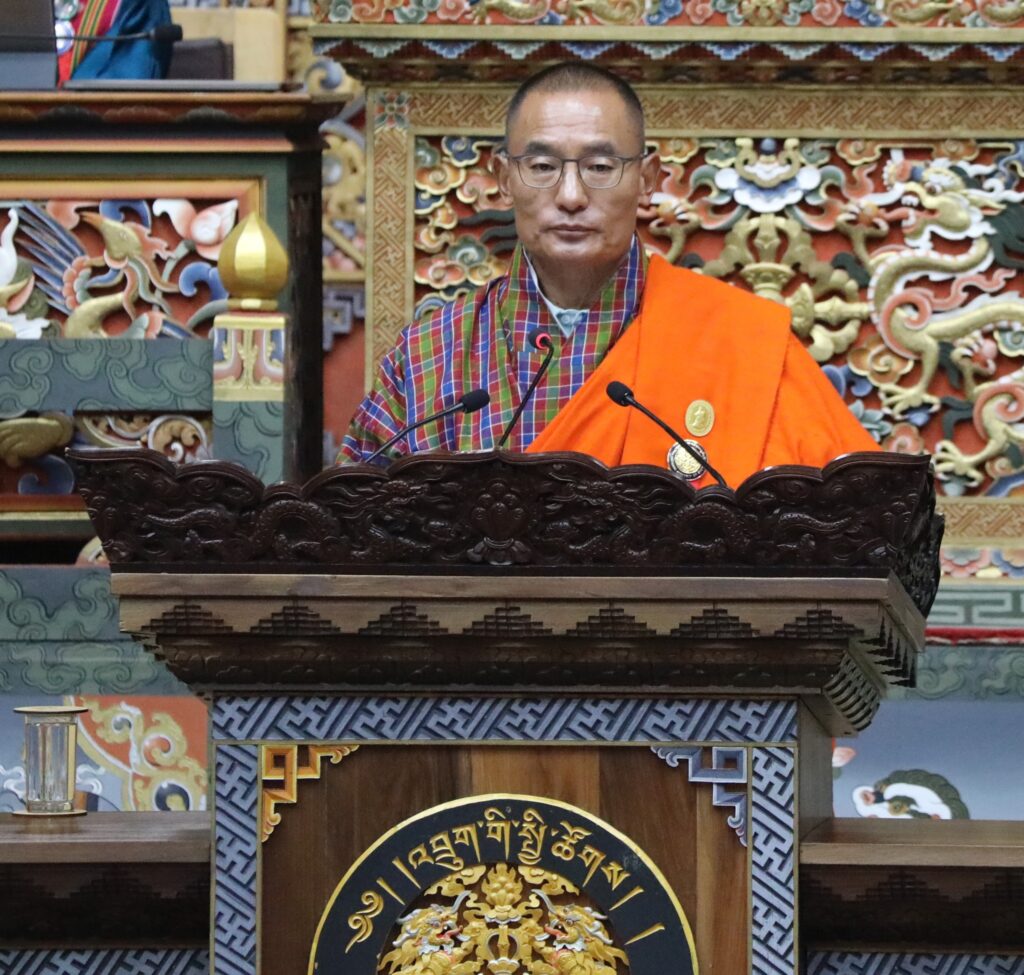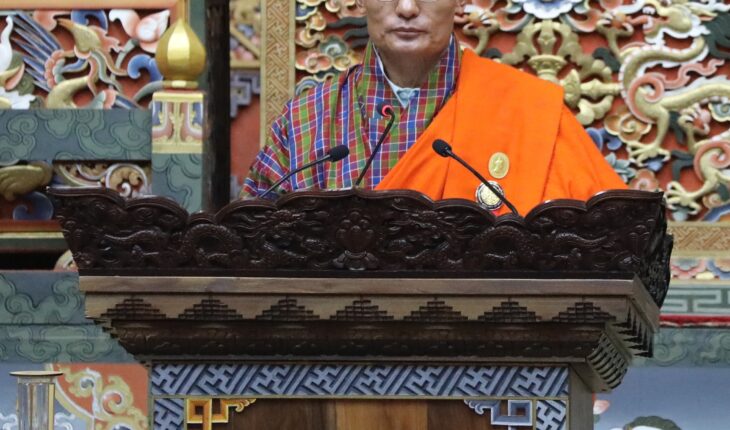
PM Raises Concern in State of the Nation Report
TIL BDR GHALLEY
Thimphu
Prime Minister Tshering Tobgay, presenting the Second Annual State of the Nation Report to the Joint Sitting of Parliament on 03 July, highlighted Bhutan’s accelerating economic growth, the pressing challenge of overseas migration, and the government’s comprehensive strategic roadmap for the financial year 2025–2026.
“Bhutan’s GDP increased from Nu. 249 billion in 2023 to Nu. 273 billion in 2024, reflecting a 9.6 percent growth in just one year,” the Prime Minister said. “Moreover, economic experts project that the country’s economy will continue to grow by 8.3 percent.”
Despite the positive outlook, he warned that the rising number of Bhutanese residing abroad especially among the young and educated poses a threat to national capacity. “Over 65,000 Bhutanese, which is around 8.5 percent of the country’s total population, are currently residing overseas,” he said. “For Bhutan, a developing country with a small population, it is crucial to retain our human capital. Losing skilled and capable people on this scale will significantly impact our independence, security, and socio-economic development.”
To address this, the PM outlined a set of national strategies aimed at revitalizing the domestic economy and reducing dependency on foreign employment. Among these are major investments under the Nu. 512 billion 13th Five-Year Plan, implementation of the 21st Century Economic Roadmap, and the development of Gelephu Mindfulness City a royal initiative of His Majesty The King envisioned to position Bhutan as a global hub for innovation, wellness, and sustainability.
He further identified six priority sectors such as energy, agriculture, digital economy, tourism, education, and health as the foundation of Bhutan’s forward development. He cited the operationalization of the 1,020 MW Punatsangchhu-II Hydropower Project as a milestone in the energy sector. To boost economic recovery, Nu. 3.5 billion was disbursed through the Economic Stimulus Programme, aimed at supporting businesses and job creation.
Other upcoming interventions include the extension of the loan deferment period, provision of venture capital for startups, and the establishment of an Economic Development Board to attract foreign direct investment. A special committee has been constituted to implement the 21st Century Economic Roadmap.
“These initiatives are not just plans, they are essential pathways to realizing His Majesty’s vision of a prosperous and self-reliant Bhutan,” the Prime Minister said. “The government is committed to translating His Majesty’s vision into actionable development goals.”
The report also highlighted improvements in key social indicators. Bhutan’s life expectancy has increased to 70 years, and youth literacy stands at 99 percent. The “One Egg per Child per Day” nutrition programme has been rolled out nationwide as part of the government’s effort to improve child health outcomes.
Education reforms aligned with the Royal Kasho continue to be implemented, including curriculum transformation and institutional strengthening. The government has invested in building schools, hospitals, and roads across the country, reinforcing infrastructure and expanding access to essential services.
In the tourism sector, the Prime Minister noted a rebound in international arrivals, attributing the recovery to global branding efforts and improved service quality. Cultural exports have also increased, contributing to economic diversification and Bhutan’s soft power.
Addressing governance, the PM reaffirmed the government’s focus on policy and service delivery excellence. “To ensure sustained progress, the government will strengthen policy and governance excellence, engage the private sector as a key partner, and promote investments across all sectors,” he said.
On the legislative front, seven bills were tabled during the current session, including three fiscal reform bills: the GST (Amendment) Bill, the Excise Tax Bill, and the Income Tax Bill. Additionally, amendments are being prepared for four major laws: the Water Act of 2011, the Mines and Minerals Management Act of 1995, the Electricity Act of 2001, and the Consumer Protection Act of 2012. These revisions are expected to align Bhutan’s legal framework with the Civil Service Reform Act of 2022 and the nation’s evolving economic landscape.
Reaffirming Bhutan’s national identity and stability, the PM said, “Bhutan continues to be a peaceful and sovereign nation, guided by the philosophy of Gross National Happiness.”
As the country navigates post pandemic recovery, migration pressures, and global uncertainties, the Prime Minister called for unity and collective effort to achieve long term national goals. In a closing appeal, he urged Bhutanese overstaying their visas in the United States to voluntarily return home and contribute to the nation’s development.
The State of the Nation Report, submitted in line with Article 10, Section 10 of the Constitution, provides a detailed review of the government’s priorities, progress, and policy commitments for the fiscal year ahead.
Structured into five chapters, the report encapsulates Bhutan’s economic, social, and political trajectory, underscoring the government’s commitment to inclusive development, resilience, and the national vision shaped by the leadership of His Majesty The King.




